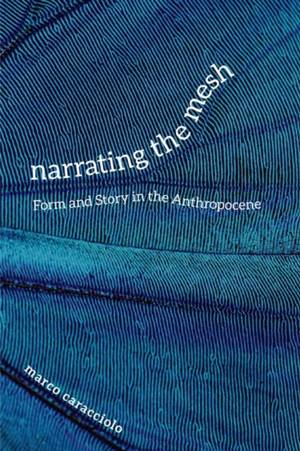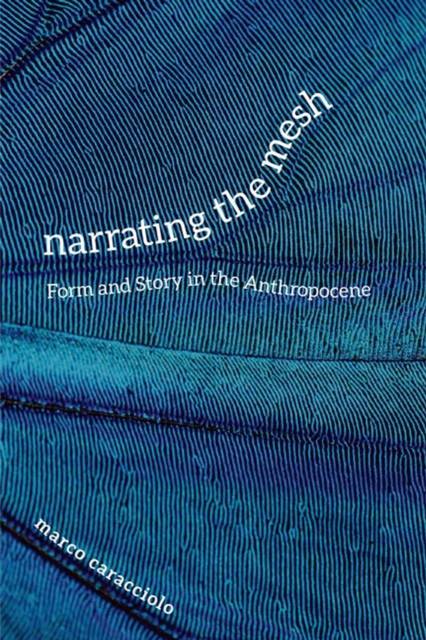
- Afhalen na 1 uur in een winkel met voorraad
- Gratis thuislevering in België vanaf € 30
- Ruim aanbod met 7 miljoen producten
- Afhalen na 1 uur in een winkel met voorraad
- Gratis thuislevering in België vanaf € 30
- Ruim aanbod met 7 miljoen producten
Omschrijving
A hierarchical model of human societies' relations with the natural world is at the root of today's climate crisis; Narrating the Mesh contends that narrative form is instrumental in countering this ideology. Drawing inspiration from Timothy Morton's concept of the "mesh" as a metaphor for the human-nonhuman relationship in the face of climate change, Marco Caracciolo investigates how narratives in genres such as the novel and the short story employ formal devices to effectively channel the entanglement of human communities and nonhuman phenomena.
How can narrative undermine linearity in order to reject notions of unlimited technological progress and economic growth? What does it mean to say that nonhuman materials and processes--from contaminated landscapes to natural evolution--can become characters in stories? And, conversely, how can narrative trace the rising awareness of climate change in the thick of human characters' mental activities? These are some of the questions Narrating the Mesh addresses by engaging with contemporary works by Ted Chiang, Emily St. John Mandel, Richard Powers, Jeff VanderMeer, Jeanette Winterson, and many others. Entering interdisciplinary debates on narrative and the Anthropocene, this book explores how stories can bridge the gap between scientific models of the climate and the human-scale world of everyday experience, powerfully illustrating the complexity of the ecological crisis at multiple levels.
Specificaties
Betrokkenen
- Auteur(s):
- Uitgeverij:
Inhoud
- Aantal bladzijden:
- 240
- Taal:
- Engels
- Reeks:
Eigenschappen
- Productcode (EAN):
- 9780813945835
- Verschijningsdatum:
- 26/02/2021
- Uitvoering:
- Paperback
- Formaat:
- Trade paperback (VS)
- Afmetingen:
- 152 mm x 229 mm
- Gewicht:
- 358 g

Alleen bij Standaard Boekhandel
Beoordelingen
We publiceren alleen reviews die voldoen aan de voorwaarden voor reviews. Bekijk onze voorwaarden voor reviews.











